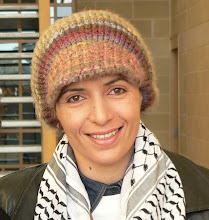
Around one thousand Palestinian including students who study abroad, disparate patients who need operations, employees reside and work in the Gulf States and worldwide together with their families are stranded at El Arish town in Egypt. They are waiting for the Egyptian authorities to allow them to cross to Cairo.
Gaza borders with Egypt, also known as Rafah borders, were rarely opened since June 2006. Moreover, it was completely closed after Hamas took over Gaza last summer. Needless to say that the rest of the outlets and crossing points to and outside Gaza that controlled by Israel were also barred part of irregular opening times leaving Gaza population subject to the longest and harshest closure ever. This tightened blockade, in the view of many, has turned Gaza into the largest open air prison in the world.
Gaza borders with Egypt, also known as Rafah borders, were rarely opened since June 2006. Moreover, it was completely closed after Hamas took over Gaza last summer. Needless to say that the rest of the outlets and crossing points to and outside Gaza that controlled by Israel were also barred part of irregular opening times leaving Gaza population subject to the longest and harshest closure ever. This tightened blockade, in the view of many, has turned Gaza into the largest open air prison in the world.
Large part of those stranded at El Arish came to visit their families before June 2007 and got trapped there after Rafah borders were re-sealed The students who already missed two terms of their study hope that the Egyptian administration could stamp their passports in order to be able to resume their studies. Those holding temporary residence outside Gaza and who lived the drastic fear of loosing it during the past few months hope for a permit to cross to Cairo airport in order to catch flights to their ultimate destinations. The patients who are in great need for treatment hope for an end to their suffering by getting a permit to reach Cairo in order to be admitted to hospitals there.
People stranded at El Arish town have contradictory feelings. On one hand, they live the fear of being turned back to Gaza. The hope however, is to let them cross to Cairo. Between optimisms and pessimism, people eyes are directed towards the gates of El Arish office in charge for issuing the permits.
To be continued








